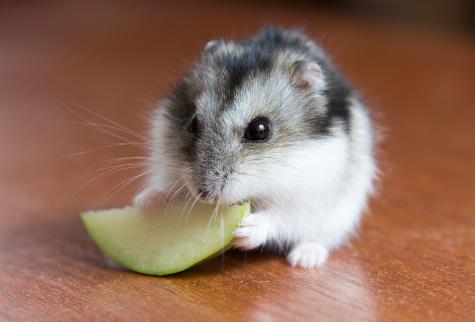Both hamsters and guinea pigs have their own advantages and disadvantages. Which one makes a better pet depends on your lifestyle and preferences.

Hamsters
Advantages:
Small in size: Hamsters are small, taking up very little space. They are suitable for families with limited living space.
Low breeding cost: They cost less for food and cages, making them a good choice for those on a tight budget.
Highly independent: Hamsters are relatively independent and don't require a lot of companionship. They are ideal for busy pet owners.
Disadvantages:
Short lifespan: With an average lifespan of about 2 to 3 years, they are not suitable for those who want a long-term pet companion.
Nocturnal activity: Hamsters are active at night, which may disturb people who need a quiet rest environment.
Weak interactivity: Although they can establish a certain relationship with their owners, their interactivity is relatively weak. They are not suitable for those who prefer close interaction with their pets.
Guinea Pigs (Cavies)
Advantages:
Gentle in character: They are easy to interact with people, making them suitable for pet owners who want more interaction with their pets.
Long lifespan: With an average lifespan of 5 to 7 years, they are suitable for those who desire long-term companionship.
Strong interactivity: Guinea pigs are social animals and can easily build a sense of trust and dependence with their owners.
Rarely bite: They are pure herbivores and have no aggression towards their owners, making them suitable for those who want to reduce the risk of being bitten.
Disadvantages:
High space requirements: They need a relatively large living space and a bigger cage.
High dietary requirements: Fresh vegetables and hay need to be provided, so the breeding cost is relatively high.
Require social interaction: They are not suitable for long periods of solitude and need regular companionship and interaction.
